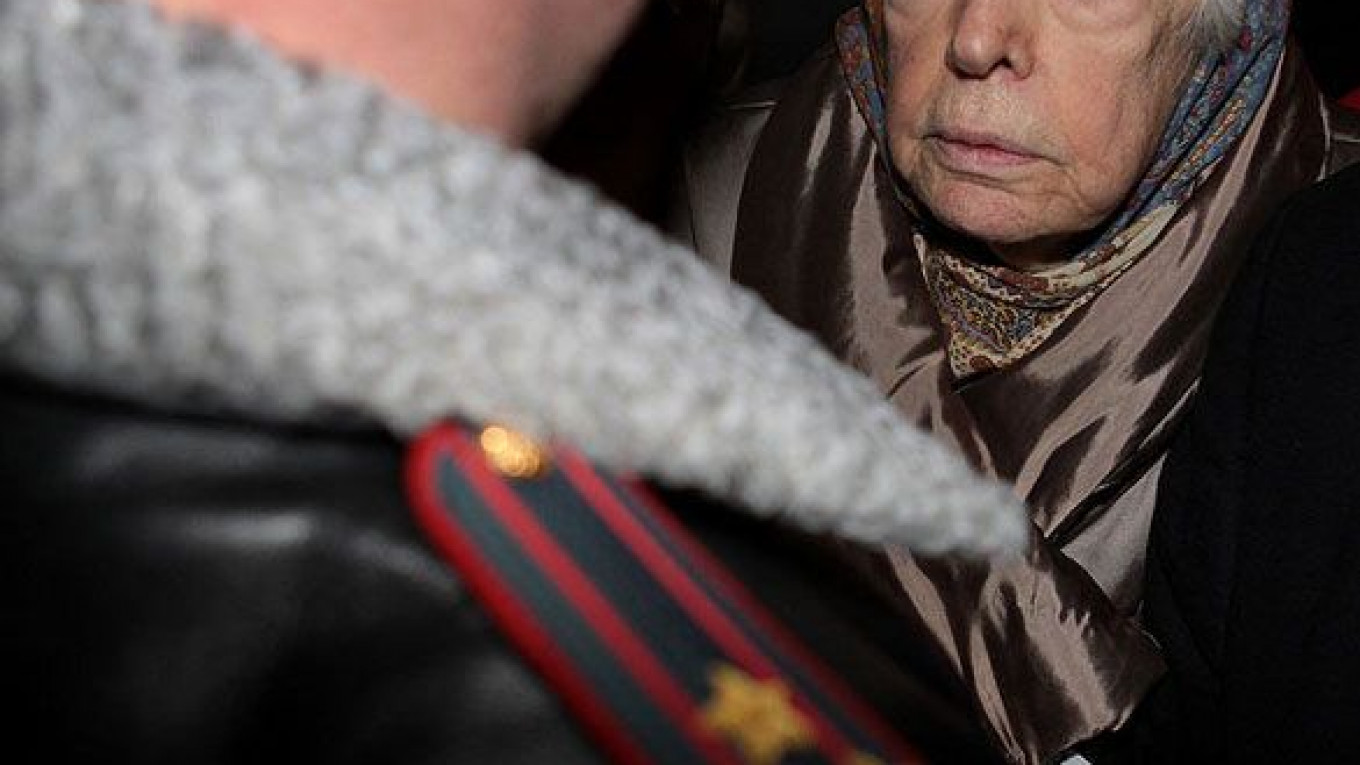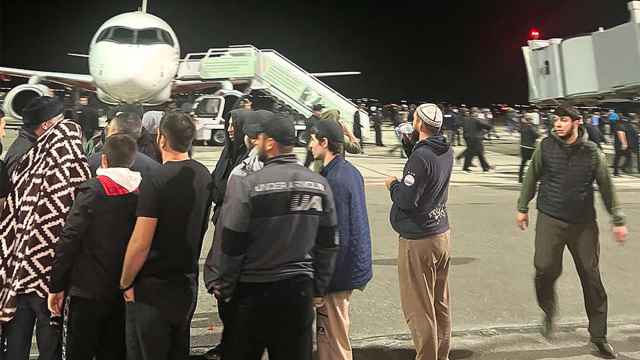Amid the public furor over the State Duma's proposed ban on U.S. adoptions, many seem to have overlooked the fact that the so-called "anti-Magnitsky act," which passed the lower house of parliament on Friday, would also place harsh new restrictions on non-governmental organizations.
Unlike the adoptions ban, the new restrictions on U.S. funding for certain groups haven't sparked pickets outside the Duma, and tens of thousands haven't signed online petitions opposing them.
But human rights leaders say the rules are a further tightening of the screws on civil society organizations, which have been pressed in recent months by new laws that expanded the definition of treason and required certain groups to classify themselves as "foreign agents," which all major NGOs boycotted.
"It feels like war has been declared," said Alexander Cherkasov, head of the Memorial human rights organization. "Nobody sewed on the yellow star. The new law, to extend the metaphor, says: 'We'll shoot you even if you're not wearing a yellow star.'"
The proposed rules would make it illegal for NGOs that receive funding from U.S. citizens or organizations to participate in "political activities" or otherwise threaten Russia's national interests.
They would also ban Russian citizens who hold American passports from being members or leaders of "political" NGOs, including local branches of international groups, which could see their assets seized for breaking the law.
Civil society leaders worried that the bill's vague language meant it could be used selectively.
There's no established legal definition of a "threat against Russian interests," for instance, therefore the anti-Magnitsky act "is not a law," concluded Transparency International's Yelena Panfilova.
The restrictions on Russians who hold American passports seemed to be aimed at veteran human rights leader Lyudmila Alexeyeva, Panfilova said, referring to the head of the Moscow Helsinki Group, Russia's oldest human rights watchdog.
Alexeyeva, 85, was forced to emigrate from the Soviet Union in 1977 and received U.S. citizenship in 1982. She returned to Russia in 1993 and received a Russian passport as well.
Last week, Irina Yarovaya, head of the Duma's Security Committee, lashed out at Alexeyeva by questioning her loyalty in a statement carried on the party's website.
The legislation would be a serious blow to the Moscow Helsinki Group, but not a deadly one, Alexeyeva said.
"If they're going to literally enforce everything written in the law … then two of Russia's leading, best-known civil organizations — the Moscow Helsinki Group and Memorial — should be closed," she said by telephone on Friday.
But, she added, "I think it's improbable. … We survived the Soviet regime. We'll survive this. The question is how and in what form," she said.
U.S. Ambassador Michael McFaul also expressed concern about the NGO measures, which he said would "deprive Russian civil society activists engaged in 'political activities' of the ability to work with Americans of their choice," according to a statement posted on the embassy's website on Friday.
The Kremlin has for years accused U.S. financed human rights and pro-democracy groups of being agents of the U.S. State Department and dismissed them as pests and troublemakers.
As in the past, McFaul insisted that the U.S. government's "interaction" with Russian civil society "has always been non-partisan and transparent, and in the spirit of mutual respect and common interest."
Specific commentary was not immediately forthcoming from Human Rights Watch and Amnesty International, two international rights organizations with Russian branches that would seem likely to be in violation of the proposed restrictions on funding by U.S. citizens.
Amnesty International's Russia office said nobody was available to comment, and a Human Rights Watch official in New York was only willing to respond to the bill in general terms.
"[It] is harmful to Russia's orphans, to democracy and public participation in Russia, and violates Russia's international human rights commitments," Hugh Williamson, Europe and Central Asia director at Human Rights Watch, said in an e-mailed statement.
The legislation, which also includes a travel and asset ban on U.S. citizens deemed to have harmed Russians abroad, was overwhelmingly approved by a margin of 420 in favor to seven opposed.
Those opposed included four members of the A Just Russia party, two Communists, and one ruling United Russia party deputy, Boris Reznik, who heads a charity for gravely ill children in the Khabarovsk region.
It must now be approved by the Federation Council and President Vladimir Putin to become law. The bill will likely be introduced in the upper house of parliament on Wednesday, First Deputy Speaker Alexander Torshin said Friday in comments carried by Interfax.
The legislation has been promoted as retaliation against the United States for the passage of the so-called Magnitsky Act, which calls for sanctions against Russian human rights abusers.
But it also appears to be the latest move in a long-running Kremlin campaign against critics that has included new restrictions on public rallies, the re-criminalization of libel, and new restrictions on Internet content.
Pro-democracy, human rights and civil society NGOs have, in particular, come under pressure.
In October, Russia ordered the U.S. Agency for International Development to cease operations in Russia as of Nov. 1 because, the Foreign Ministry said, USAID had used grants to try to influence Russian politics, including elections and civil society institutions.
Last month, two laws came into effect that required NGOs to register as foreign agents if they finance political activity with foreign funds and expanded the definition of treason to include divulging state secrets or "providing consulting or other work to a foreign state or international organization" if that organization works against Russian security interests.
Incidentally, a Chuvashia-based human rights organization called Shchit i Mech, or Shield and Sword, recently became the first NGO to voluntarily submit an application under the "foreign agents" law, Kommersant reported Friday.
Related articles:
A Message from The Moscow Times:
Dear readers,
We are facing unprecedented challenges. Russia's Prosecutor General's Office has designated The Moscow Times as an "undesirable" organization, criminalizing our work and putting our staff at risk of prosecution. This follows our earlier unjust labeling as a "foreign agent."
These actions are direct attempts to silence independent journalism in Russia. The authorities claim our work "discredits the decisions of the Russian leadership." We see things differently: we strive to provide accurate, unbiased reporting on Russia.
We, the journalists of The Moscow Times, refuse to be silenced. But to continue our work, we need your help.
Your support, no matter how small, makes a world of difference. If you can, please support us monthly starting from just $2. It's quick to set up, and every contribution makes a significant impact.
By supporting The Moscow Times, you're defending open, independent journalism in the face of repression. Thank you for standing with us.
Remind me later.






